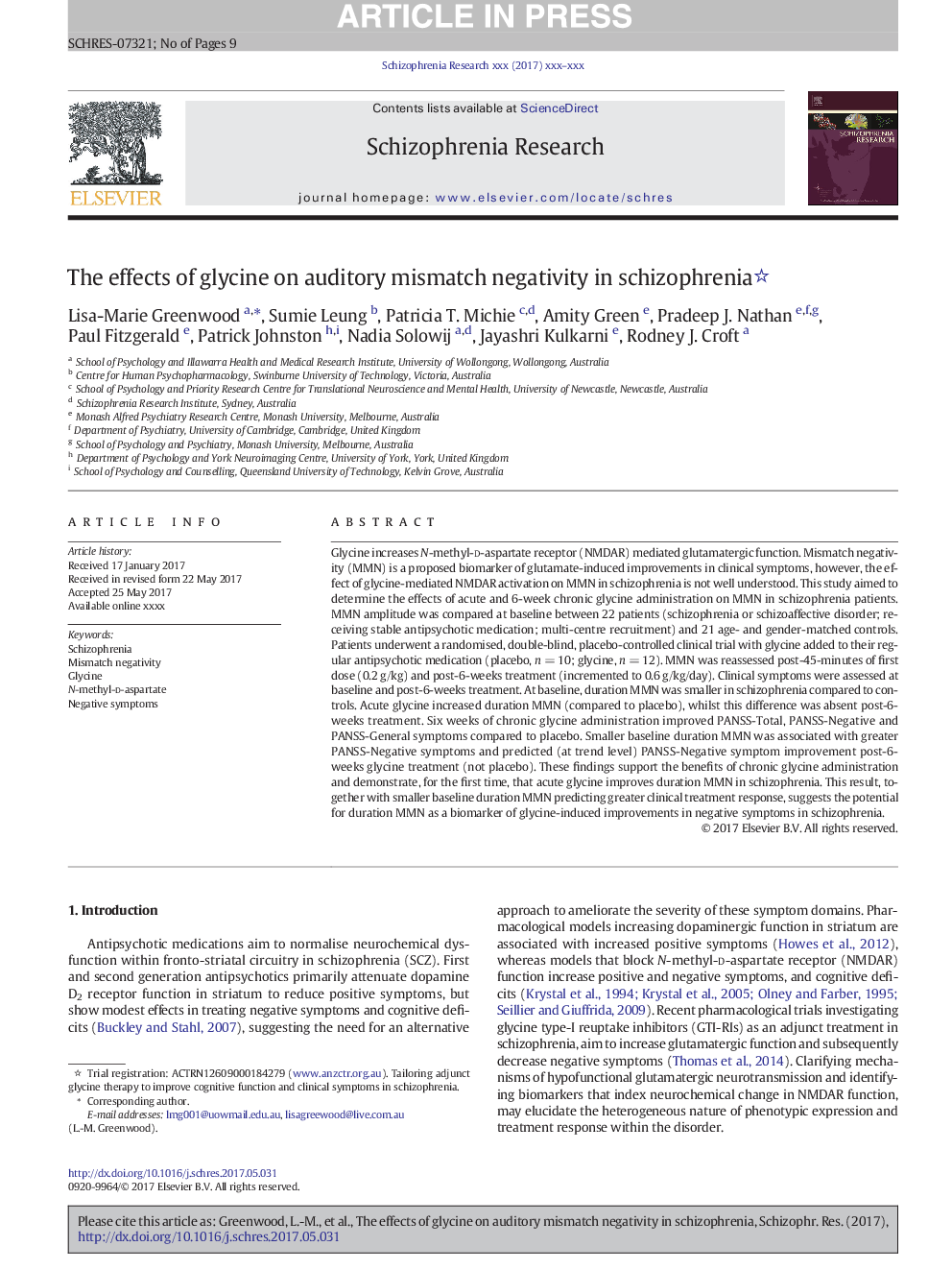ترجمه فارسی عنوان مقاله
اثرات گلیسین بر منفی بودن عدم تطابق شنوایی در اسکیزوفرنی
عنوان انگلیسی
The effects of glycine on auditory mismatch negativity in schizophrenia
| کد مقاله | سال انتشار | تعداد صفحات مقاله انگلیسی |
|---|---|---|
| 117691 | 2018 | 9 صفحه PDF |
منبع

Publisher : Elsevier - Science Direct (الزویر - ساینس دایرکت)
Journal : Schizophrenia Research, Volume 191, January 2018, Pages 61-69

